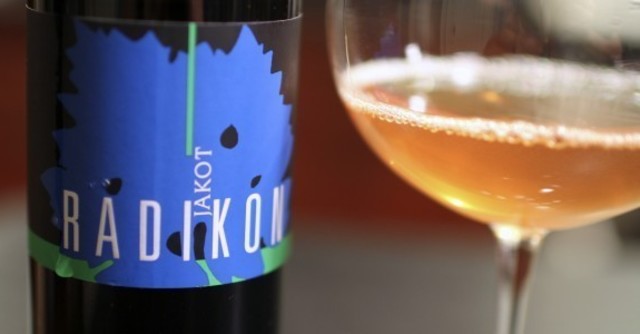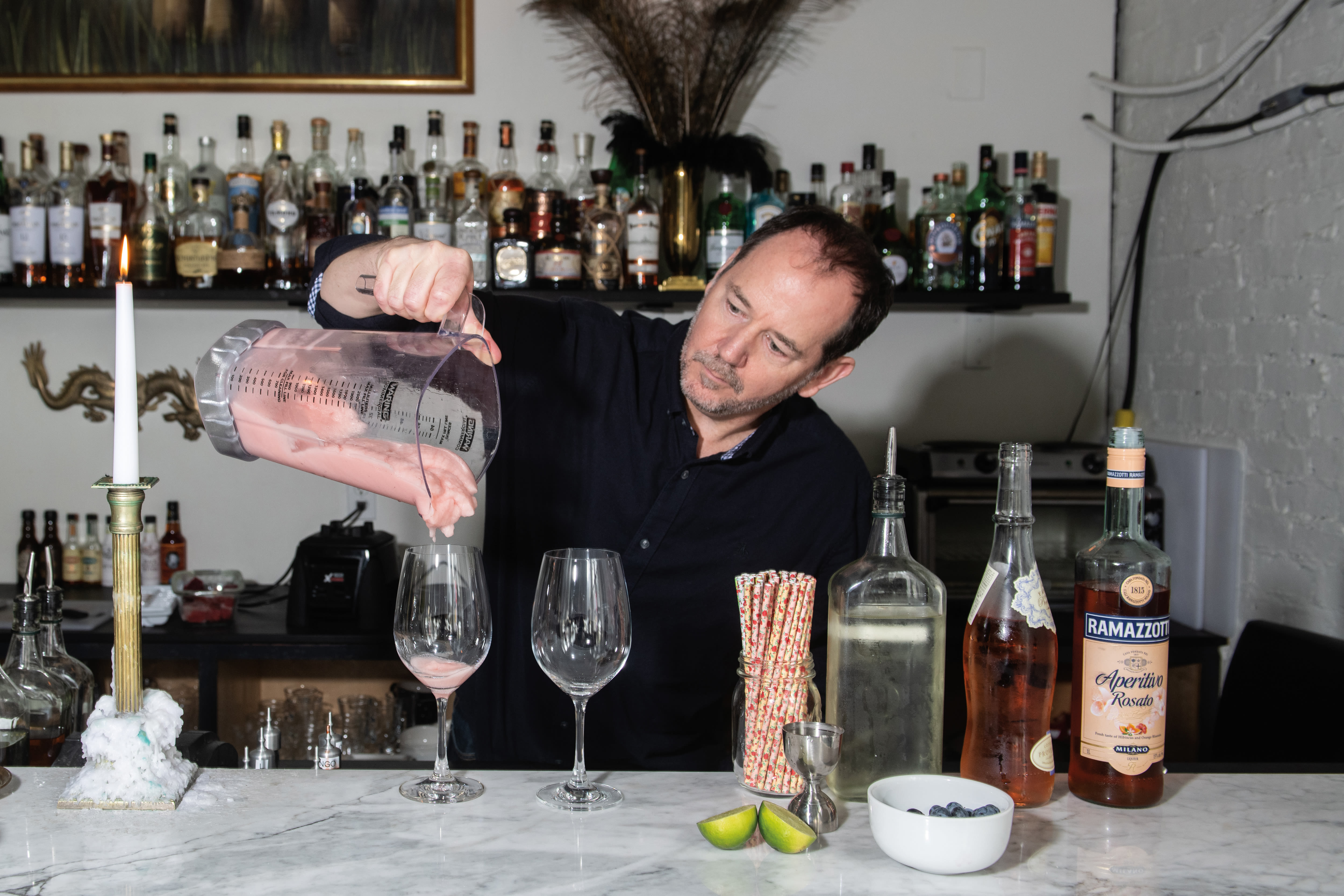Stupid Question for the Bottle Shop Owner: What's Orange Wine?

No, it's not made with orange juice. Image via 77 Square.
I stopped into Madrona wine bar/shop Bottlehouse a few weeks ago so owners Henri Schock and Soni Davé-Schock could fill me in on their kitchen expansion. Somehow the topic of orange wine made its way into the conversation: I'd never heard of it; the Schocks said they saw it all over the place on a recent trip to New York. The idea of this nutty, funky white-originated wine lingered in my brain all throughout the holidays. So I asked Henri to elaborate. And now I can't wait to find some.
What, exactly, is orange wine?
Orange wine is not a misnomer, necessarily, but it’s made with white wine grape varietals. Orange wine can be made with just about any white wine varietal— typically seen used with Italian and more obscure Eastern European varietals. White wine usually has limited or no maceration time, or skin contact which happens during the fermentation process. But for orange wine the grape skins spend more time in contact with the juice during the fermentation process, which tends to give it a bit more intense structure and character.
It’s less of an elegant style, but has a sense of being slightly oxidized and a little nutty. It’s very deep in flavor but a different style than you would expect with a traditional white wine.
Does the name mean what I think it means?
The name denotes its actual color. It can be a large spectrum, kind of like you expect with rosés. The longer the maceration process, the heavier or more rich of an orange color you’ll get. Typically I see a lot of Italian winemakers using this practice.
Okay. So how do I go about drinking it?
I’ve seen wine lists [in cities like New York and Chicago] that denote orange wines, maybe in parenthesis or with a little asterisk. You probably need to ask for it specifically if you’re going to go into a restaurant or a wine bar. Radikon Jakot is a well-known orange wine that you can find in many boutique wine shops. We sell it on our retail side and will be getting in some Georgian orange wine; the Georgians produce some of the best.
Does it pair well?
Pairings are where it gets a little more fun. Because of the intensity of their flavors, orange wines are good to pair with robust flavors like earthy mushrooms, aged cheese, and sometimes even anchovies. I would even venture so far as to pair it with gamey meats, maybe some venison or quail depending on the style.
Why don’t we see much orange wine?
They are fairly rare on the market, made in small quantities, and a bit of an acquired taste. With orange wine, the nose is so captivating, with profiles of barnyard, sea air, and slightly oxidtive, even though they are not at all oxidized. It almost smells like a wine that's been open for a couple days too long. I usually like to describe it as similar to a really dry sherry—very bright, vibrant, and citrusy with nutty undertones. If people like classic dry sherr ies, I would tell them to jump on it.
I don’t know if it’s kind of a craze that’s starting on the east coast and slowly working its way here, but I really hope so. It’s one of those wines that is so different and unique. I’d recommend it for people who want something more adventurous.




